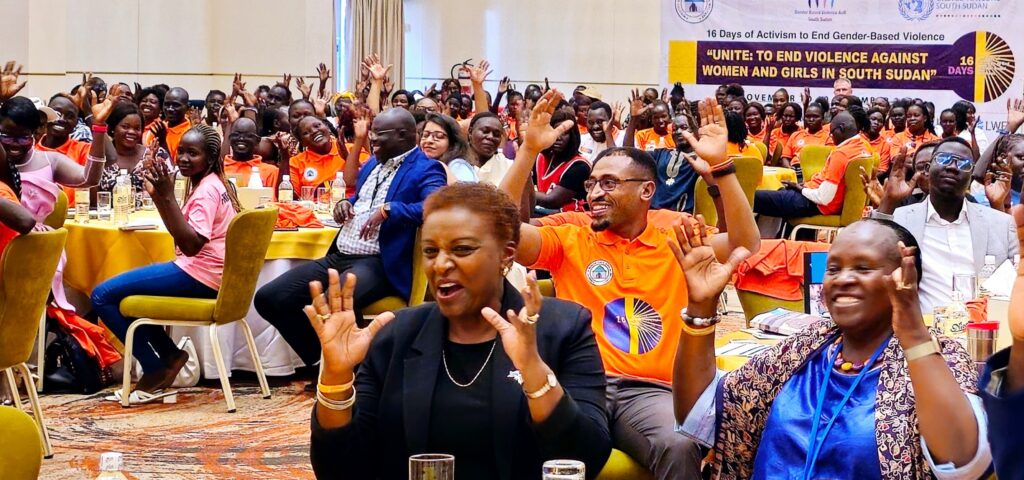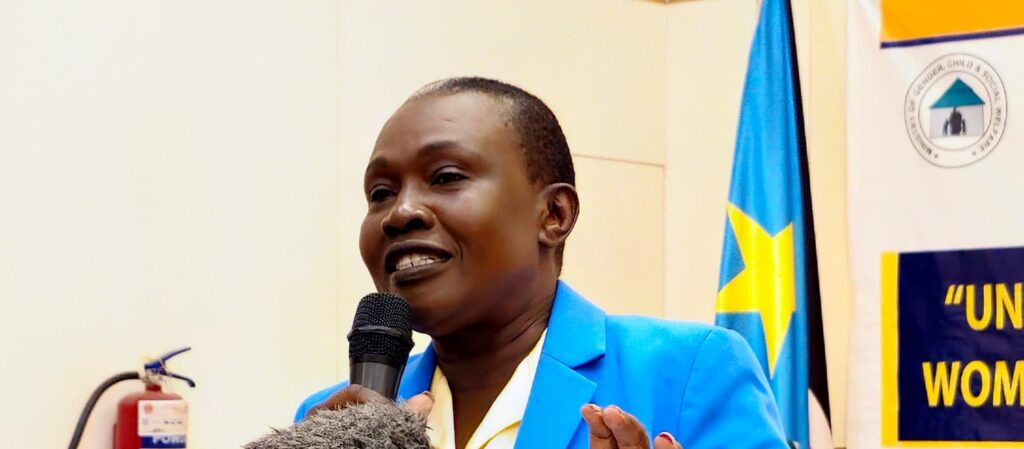South Sudan’s Minister of Interior, Angelina Teny, has called for urgent action to combat gender-based violence (GBV) as the country launched its annual 16 Days of Activism campaign.
Speaking at the event in Juba on Monday, themed “Unite to End Violence Against Women and Girls in South Sudan,” Teny emphasized the need to transform existing laws into effective action.
While acknowledging progress, such as heightened awareness and improved law enforcement training, Teny pointed out that the real challenge lies in the implementation of laws. “We have laws, but the challenge is in effectively enforcing them,” she stated. “Let’s use these 16 days not just for activism, but to develop actionable plans that create lasting change throughout the year.”
She highlighted significant barriers such as limited resources and a fragmented justice system. Teny called for a comprehensive approach to addressing GBV, one that involves not only law enforcement but also prosecutors, judicial institutions, and community leaders.
Teny also drew attention to the emotional and psychological impacts of GBV, which are often overlooked. “The trauma caused by violence can leave victims unable to contribute to society, yet we continue to stigmatize them rather than addressing the root causes of violence,” she added.
The campaign, spearheaded by the Ministry of Gender, Child, and Social Welfare, aims to mobilize communities, government agencies, and international partners for collective action against violence.

Meanwhile, Gender Minister Aya Benjamin Warile urged all stakeholders to actively participate in community dialogues and workshops. She stressed the importance of survivor-centered approaches and stronger accountability mechanisms. “The government is committed to addressing GBV,” Warile affirmed. “Our goal is to create a society where every woman and child feels safe, valued, and empowered.”
Warile also emphasized the campaign’s significance within the South Sudanese context: “While this is a global initiative, its importance in South Sudan is immense as we work toward building a safer, more inclusive society.” She outlined plans for nationwide activities, including workshops and training sessions, aimed at fostering a culture of respect and equality.
Anta Kiki, Deputy Special Representative of the UN Secretary-General, presented alarming statistics, revealing that 65% of women and girls in South Sudan experience some form of violence during their lifetime.
She warned that intersecting crises—such as economic decline, intercommunal conflict, and humanitarian challenges—exacerbate risks for women and girls. “Funding for GBV interventions has significantly decreased, even as the needs continue to grow,” Kiki noted, calling for increased investment and collective action. She also emphasized the importance of involving men and boys as allies in transforming harmful gender norms.
The launch of the campaign underscored the critical roles of law enforcement, the justice system, and community engagement in combating GBV.
Speakers at the event emphasized the importance of prioritizing resources for survivors, strengthening legal frameworks, and expediting the Anti-GBV Bill.
“Where there is unity, there is strength,” Kiki concluded. “Let us unite against gender-based violence and work toward a peaceful, prosperous South Sudan where no woman or girl is left behind.”




